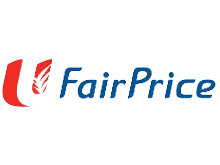
The investigator who first reports new and important findings gets credited with the discovery. At the same time, it should be recognized that the scientific community is highly competitive. Consequently, the committee decided to focus on the second aspect of integrity-namely, soundness of moral principle in the specific context of research practice.Ĭollegiality in Scientific Interactions, Including Communications and Sharing of ResourcesĬollegiality in scientific interactions, including communications and sharing of resources requires that investigators report research findings to the scientific community in a full, open, and timely fashion. In conversations with experts in ethics and others, the committee found no consensus regarding whether a person could exhibit high integrity in research but not in other aspects of his life.

Plato and subsequent philosophers have argued that leading the good life depends on a person's success in integrating moral, religious, and philosophical convictions. The first sense concerns wholeness the second, soundness of moral principle ( Oxford English Dictionary, 1989). The committee's task was to define integrity for the particular activity of research as conducted within contemporary society. It is essential that institutions foster a culture of integrity in which students and trainees, as well as senior researchers and administrators, have an understanding of and commitment to integrity in research. When institutions committed to promoting integrity in research support those standards, the likelihood of creating an environment that advances responsible research practices is greatly enhanced. By appealing to the conscience of individual scientists, the scientific community as a whole should seek to evoke the highest possible standard of research behavior. More, however, should be expected from scientists when it comes to the responsible conduct of research. In essence, government rules define the floor of expected behavior. Government oversight of scientific research is important, but such oversight, often in the form of administrative rules, typically stipulates what cannot be done it rarely prescribes what should be done (see Chapter 4 for further discussion of the strengths and limitations of a regulatory approach).
National academies press coupon code professional#
It is therefore incumbent on all scientists and scientific institutions to create and nurture a research environment that promotes high ethical standards, contributes to ongoing professional development, and preserves public confidence in the scientific enterprise (Grinnell, 1999 IOM, 2001 Resnik, 1998 Yarborough and Sharp, 2002). But this trust will endure only if the scientific community devotes itself to exemplifying and transmitting the values associated with ethical scientific conduct” (NAS, 1995, preface). The National Academies' report On Being a Scientist states: “The level of trust that has characterized science and its relationship with society has contributed to a period of unparalleled scientific productivity. Society's confidence in and support of research rest in large part on public trust in the integrities of individual researchers and their supporting institutions. As a consequence, it is more important than ever that individual scientists and their institutions periodically reassess the values and professional practices that guide their research as well as their efforts to perform their work with integrity. As science becomes increasingly intertwined with major social, philosophical, economic, and political issues, scientists become more accountable to the larger society of which they are a part.

The pursuit and dissemination of knowledge enjoy a place of distinction in American culture, and the public expects to reap considerable benefit from the creative and innovative contributions of scientists.


 0 kommentar(er)
0 kommentar(er)
